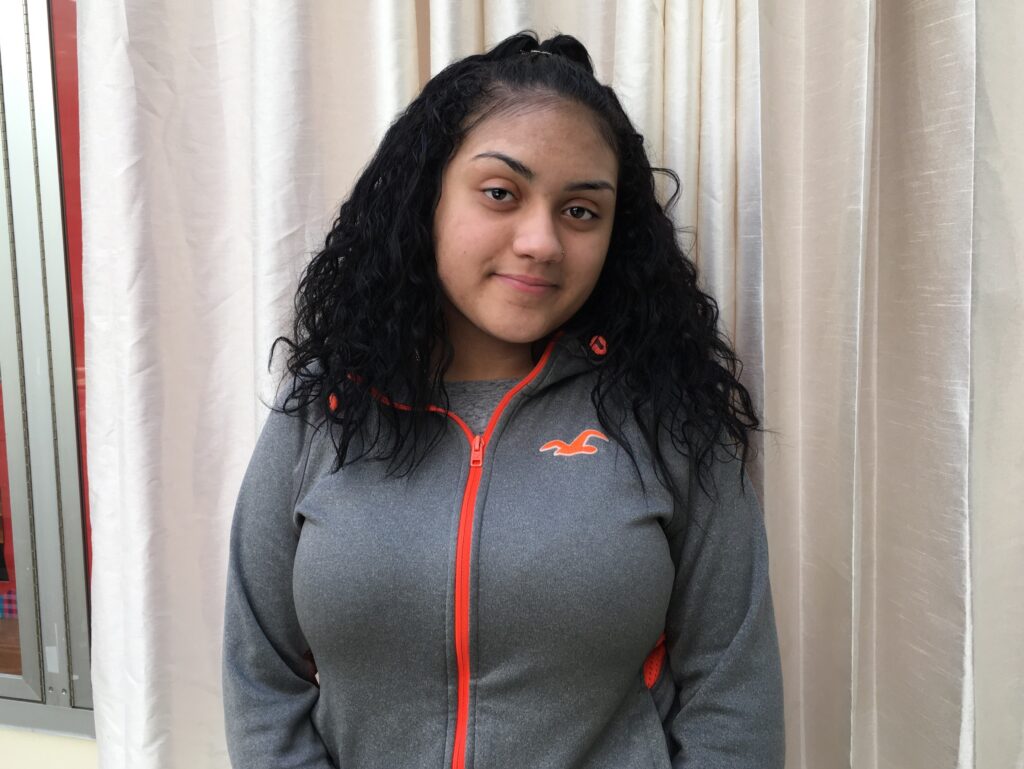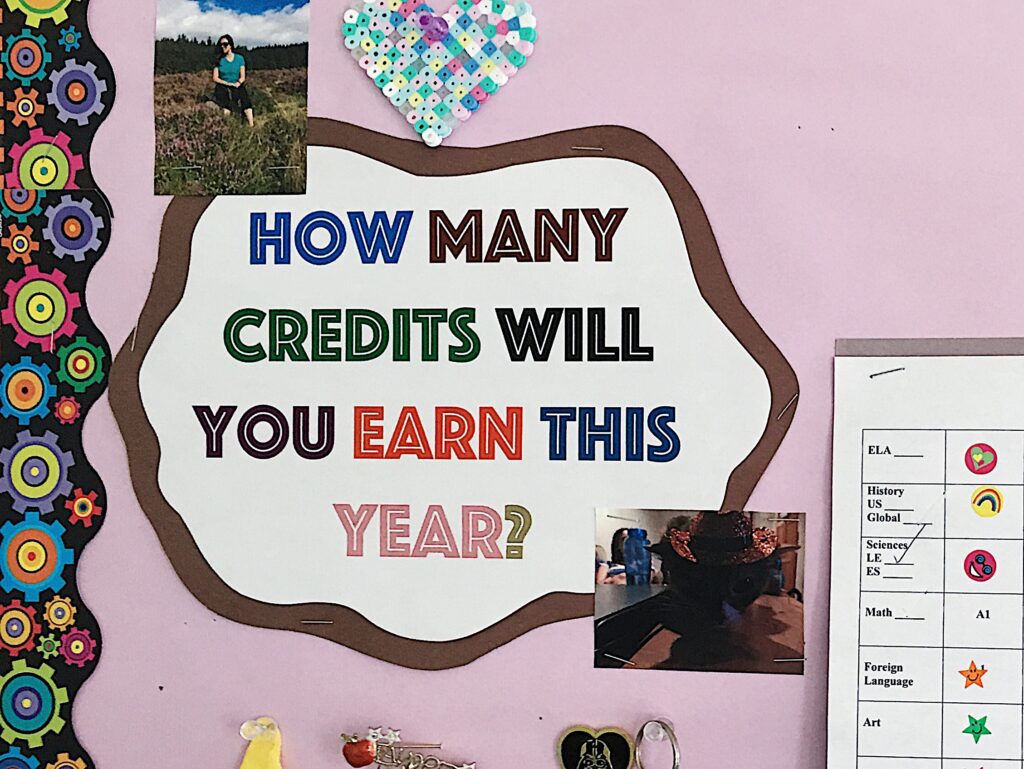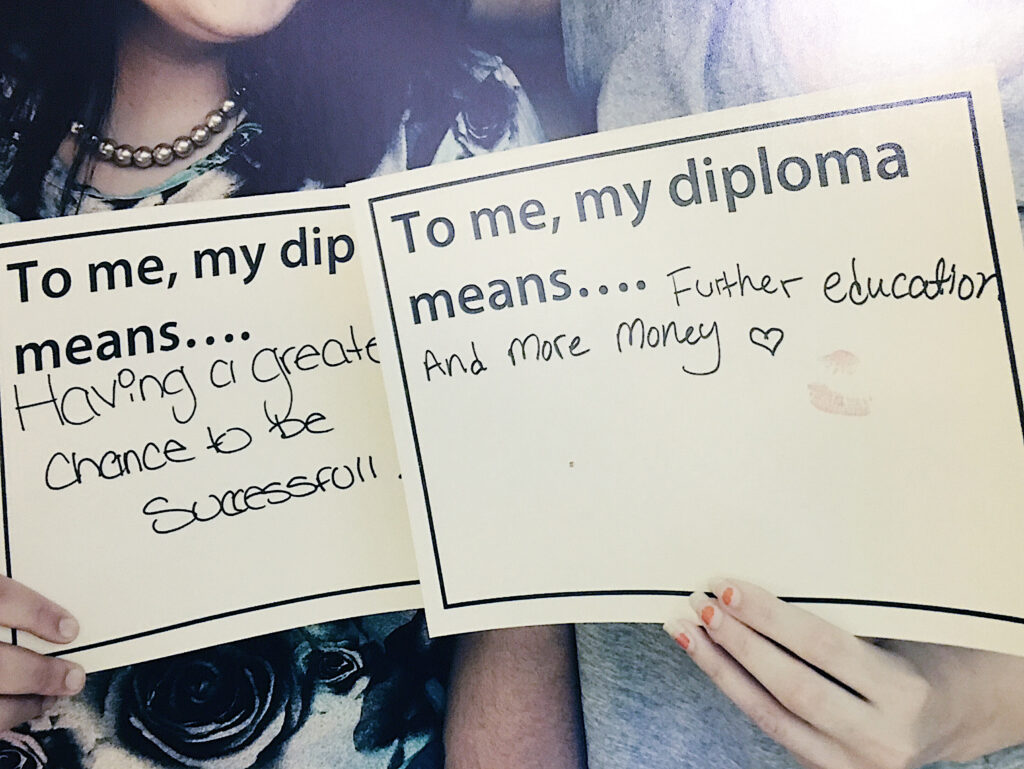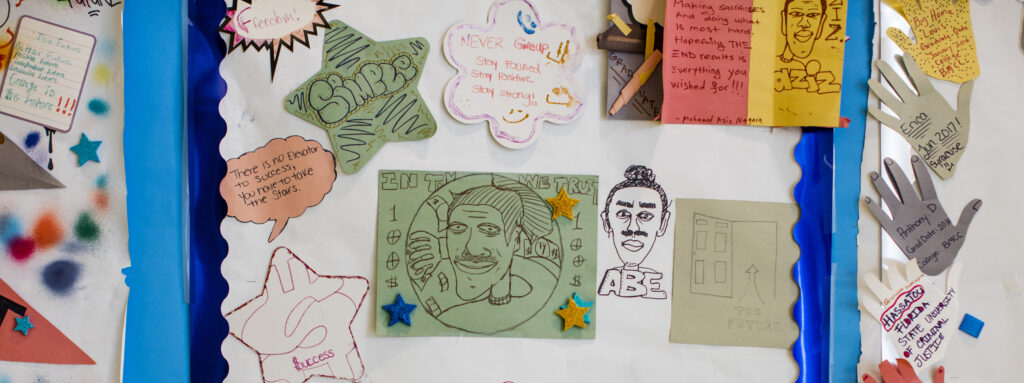Roshely is a student of 2016 Fishman Prize Winner Evelyn Rebollar, at Bronx Arena High School in New York City. We visited Bronx Arena to talk with Roshely about how she went from nearly giving up on school to thriving in the classroom, and hear her advice for principals on supporting students like her.
What brought you to Bronx Arena?
At my old school I didn't care about the work, or school in general. I would leave early. I would bring up any excuse to go home because I didn’t want to be at that school. I really started to feel that way sophomore year, because the teachers didn’t seem to care if I showed up or not. Since they had that attitude towards me, I was like, “why should I care about school?” I had no motivation to keep going.

“The teachers didn’t seem to care if I showed up or not. Since they had that attitude towards me, I was like, ‘why should I care about school?’ “
But even if I’d had teachers I could’ve trusted, I probably still would've transferred schools. To be honest, it wasn't only the teachers. It was also that I would get into a lot of fights and stuff, and the principal seemed more interested in suspending me than in helping me get into less trouble.
So, I saw school as a big waste of time. I told my mom it's either I drop out, or I switch schools. And, of course, my mom didn’t want me to drop out, so she started looking with me on the internet for schools that could help us.
I came to Bronx Arena for an interview, and when they told me that here you graduate at your own pace, I knew I was going to like the school.
What are you most proud of accomplishing since you’ve been here?
My credits. When I first got here, I had 19.5 credits. Now I have 30. So, I gained 10.5 credits since September.

“I came to Bronx Arena for an interview, and when they told me that here you graduate at your own pace, I knew I was going to like the school.”
What does that mean to you?
It means I’ll be able to graduate on time, which I wouldn’t have been able to do at my old school. If I didn’t transfer, I think I would've dropped out, to be honest
When I first got here, I wouldn't talk to anyone—especially not about my feelings. But I talked to my counselor, Sally, almost every day, and it got to the point I could trust her.
The fact that Evelyn and Sally help me makes a big difference. They understand me. If I need help with something, they're always there to help. They also care about my future and have hope for what I can achieve.
Why is graduating important?
I look up to my mom, and she cares a lot about me getting my diploma. Some of our family members didn’t graduate high school, and she’s seen how hard it can be to improve your life without an education. We’ve known people who’ve moved from house to house because of financial problems and have witnessed what it’s like to not have the options graduating gives you. My mom didn't want that to happen to me, so she said she was going to help me; she was going to motivate me to keep going.

“We’ve known people who’ve moved from house to house because of financial problems and have witnessed what it’s like to not have the options graduating gives you.”
What about after high school?
I want to go to college in Florida, somewhere warmer than New York. I want to do what my counselor does, and be a therapist for little kids.
Too many kids keep their feelings inside like I used to, and that's bad because eventually, that anger will come out. I know because it’s happened to me, and I know it would have been better if there was someone I could’ve talked about my problems with.
I think schools should focus more on making sure everybody gets along. By providing people like Sally who we can talk to instead of having to keep our feelings inside, a lot of bad incidents can be prevented.
What advice do you have for principals who want to improve their school’s culture?
If a school sticks together, it’s a much better environment. There should be opportunities for everyone to interact that aren’t just in class so that people get along better. I feel like principals should have a bond with each student. If a kid goes to their office, they should feel welcome and like the principal is listening. Also, principals should visit classrooms just to see how we’re doing, and not only to talk to the teacher or get someone in trouble.
Principals should also go into the community more and meet people; meet the parents and meet the people in the neighborhood. And I feel like they should have respect for the students, the parents, and everybody in the community.
Anything else?
I just want to say to kids: it’ll really help you if you can find adults you can trust and talk to about your feelings. And adults, it’s up to you to listen and be there challenging us and cheering for us, even when we aren’t acting like the “perfect” student.
Read more about students' experiences in school in The Opportunity Myth—then take the first step by requesting your own free action guide featuring tools and advice to help more students in your community have worthwhile experiences in school.




